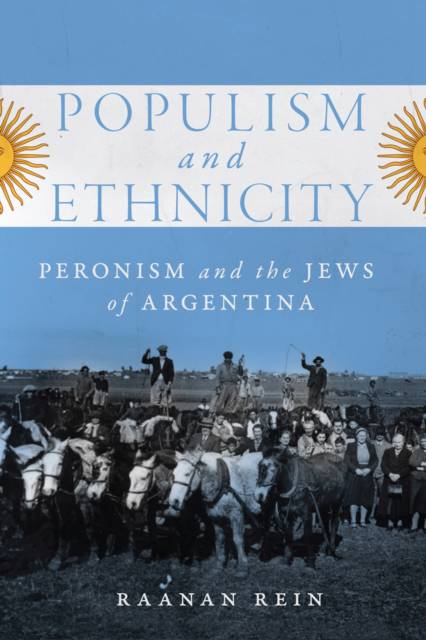
- Afhalen na 1 uur in een winkel met voorraad
- Gratis thuislevering in België vanaf € 30
- Ruim aanbod met 7 miljoen producten
- Afhalen na 1 uur in een winkel met voorraad
- Gratis thuislevering in België vanaf € 30
- Ruim aanbod met 7 miljoen producten
Zoeken
Omschrijving
Juan Perón's decade-long regime, from 1946 to 1955, is often presented as Nazi-fascist and antisemitic - claims that are strongly rooted in Argentina's collective unconscious and popular culture. Challenging this widely held view, Raanan Rein asserts that there was greater Jewish support for Perón than previously believed, and that fewer antisemitic incidents took place in Argentina during Perón's rule than during any other period in the twentieth century. Recovering the silenced voices of Jewish Argentines who supported Peronism from the beginning, Populism and Ethnicity is a historical, sociological, and political analysis that describes the many positive changes experienced by the Jewish community as a direct result of Perón's presidencies. Perón and his wife Eva gave numerous speeches denouncing antisemitism, and Perón's Argentina was the first Latin American country to open an embassy in the newly established State of Israel. Arguing that no president before Perón so unambiguously rejected discrimination against Jews, Rein shows that many Jews secured more important posts in government in the 1940s and 1950s than in previous years, among them members of the Argentine Jewish Organization, which became a section of the ruling Peronist party. Deconstructing the myth of antisemitism during Perón's regime, Populism and Ethnicity looks deep into the heart of international memory for the truth behind Jewish-Argentine relations.
Specificaties
Betrokkenen
- Auteur(s):
- Uitgeverij:
Inhoud
- Aantal bladzijden:
- 296
- Taal:
- Engels
- Reeks:
- Reeksnummer:
- nr. 1
Eigenschappen
- Productcode (EAN):
- 9780228001669
- Verschijningsdatum:
- 3/06/2020
- Uitvoering:
- Hardcover
- Formaat:
- Genaaid
- Afmetingen:
- 165 mm x 231 mm
- Gewicht:
- 635 g

Alleen bij Standaard Boekhandel
+ 103 punten op je klantenkaart van Standaard Boekhandel
Beoordelingen
We publiceren alleen reviews die voldoen aan de voorwaarden voor reviews. Bekijk onze voorwaarden voor reviews.











